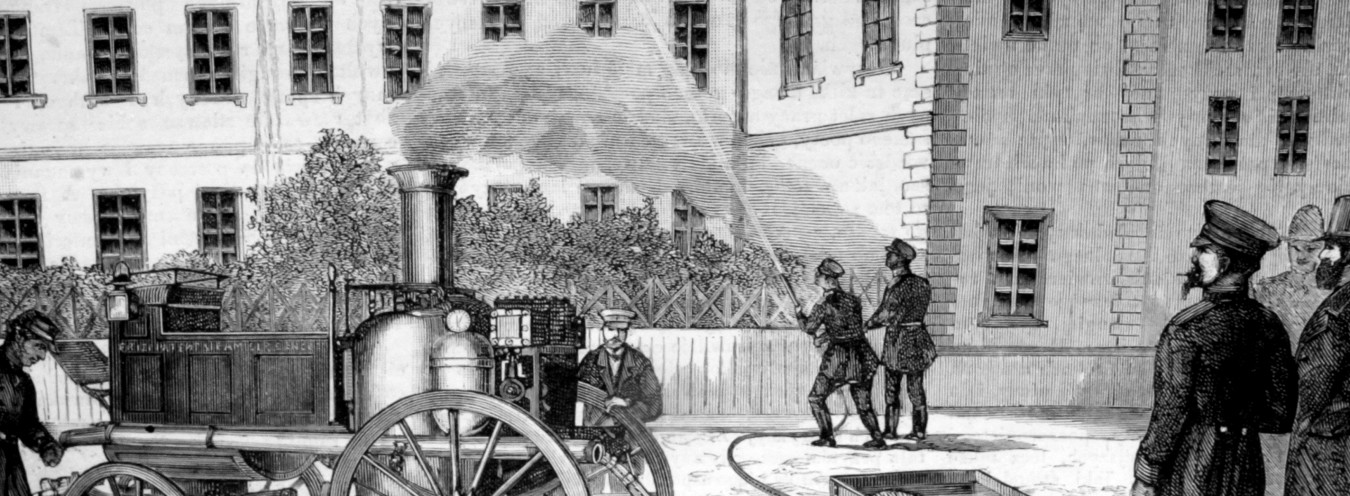
Steam machines
The world of machines in The Doll is seen from afar, with only one instance where the distance between the main character and a machine is reduced to a minimum: the failed suicide attempt near Skierniewice. Izabela Łęcka sees appliances and machines at work when she visits a foundry in France, or rather – she witnesses an intriguing and equally revolting scene through mysterious clouds of steam and smoke. Although the scene is mainly visual in character, it is also rich in various acoustic elements (a blood-red glow, the sound of rumbling wheels, bellows panting, the thundering of hammers and impatient breathing of furnaces). It is memorable enough to return to her later as a memory intertwined with the rumble of a droshky which reaches Izabela’s ears in her Warsaw apartment. Wokulski, in turn, explores the work of steam machines from the vantage point of a Parisian street, as he watches the steamboats streaming over the Seine. Here, too, smoke plays an important role in the literary composition of the scene. It is a visible mark of the machines’ work, and at the same time it is an element which introduces an aura of mystery, fleetingness, and the unknown. Wokulski approaches a machine in motion only once, or, to be precise, he allows the machine to approach him – the steam engine driving the train. It almost brushes past him, thundering past at a few inches’ distance, leaving behind a trail of steam, and, remarkably, hot ashes. During this key scene, Prus depicts the machine in motion up close – as a destructive element, not a productive one. Bright colours appear in descriptions in rather unexpected places. They are used in comparisons; for example, when Wokulski thinks of coal, which – like a heart – brings life to a ship, or when Rzecki notices the similarities between a steam machine and the efficiency and speed of movement of his clerk Henryk Szlangbaum. Above all, they are used to depict the utopian project of a flying machine, which could change the course of history.



